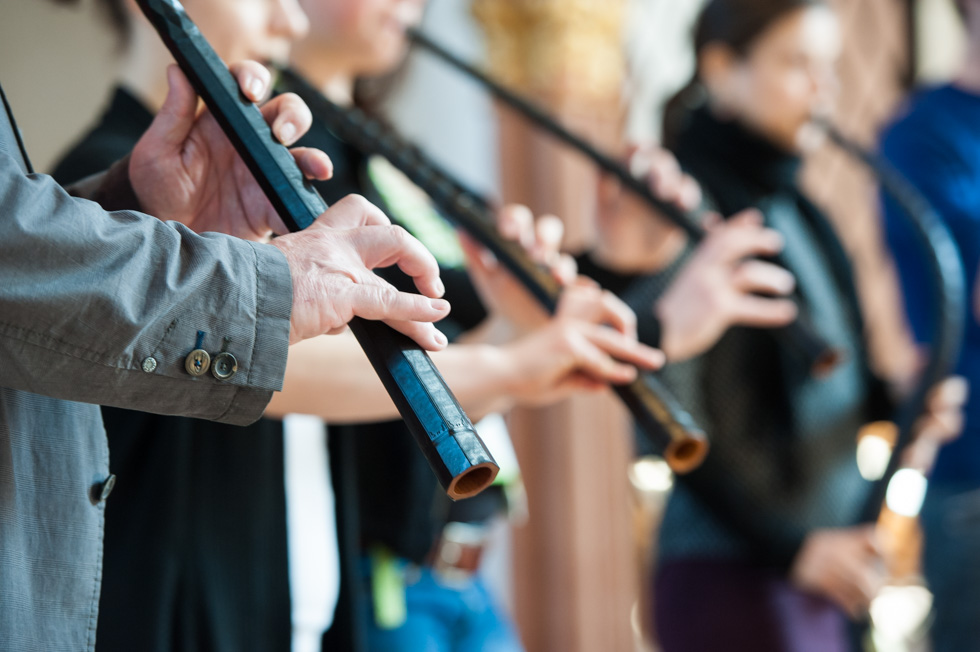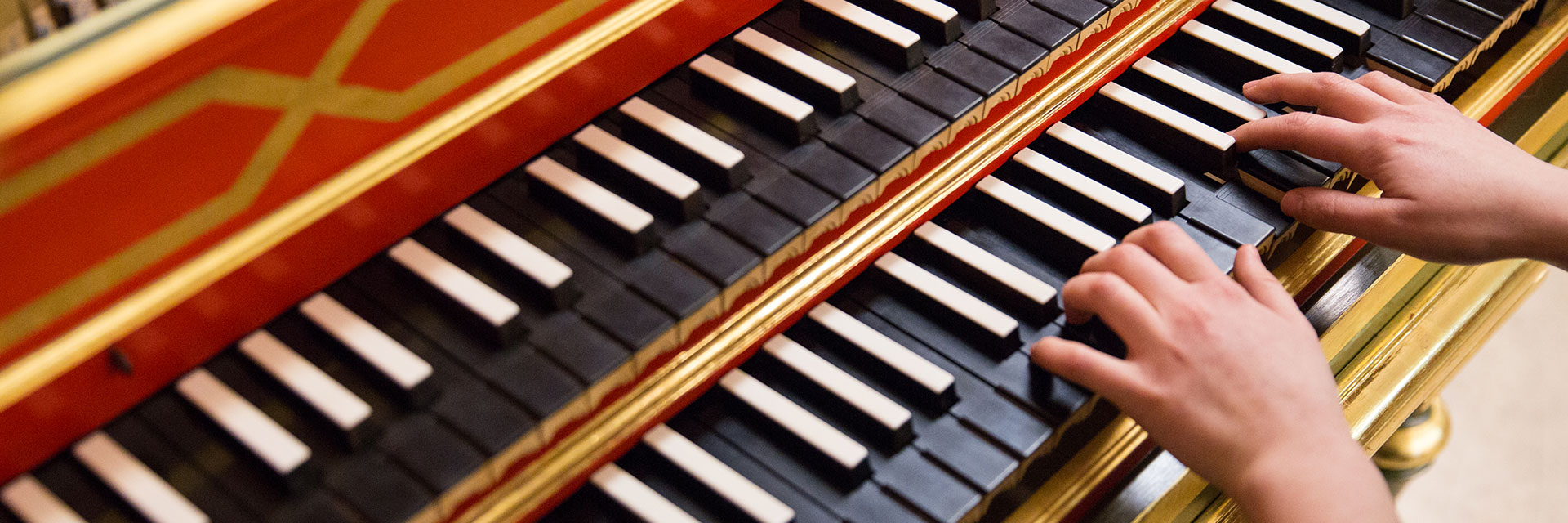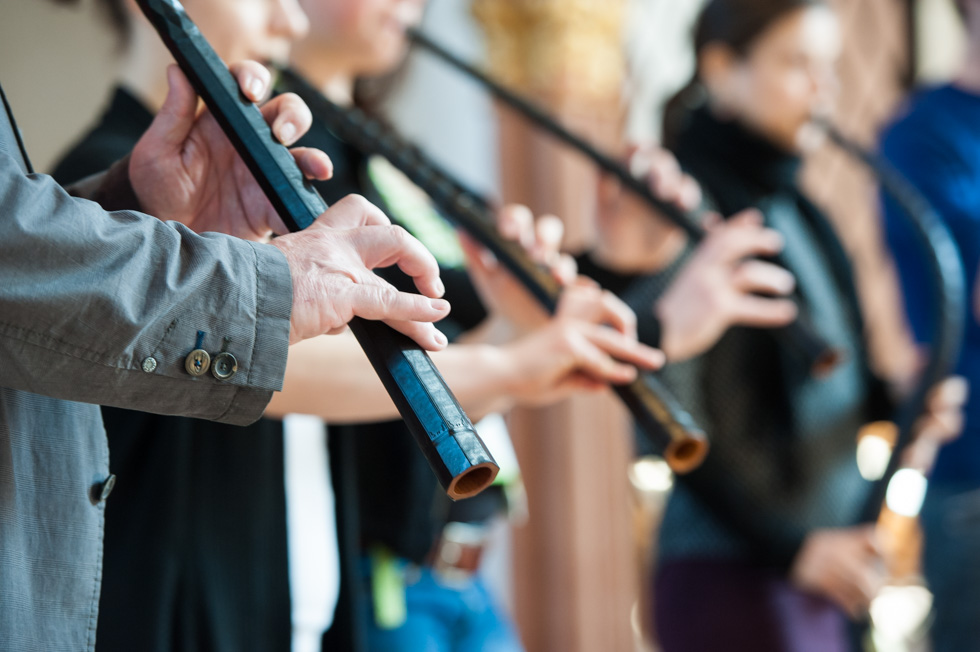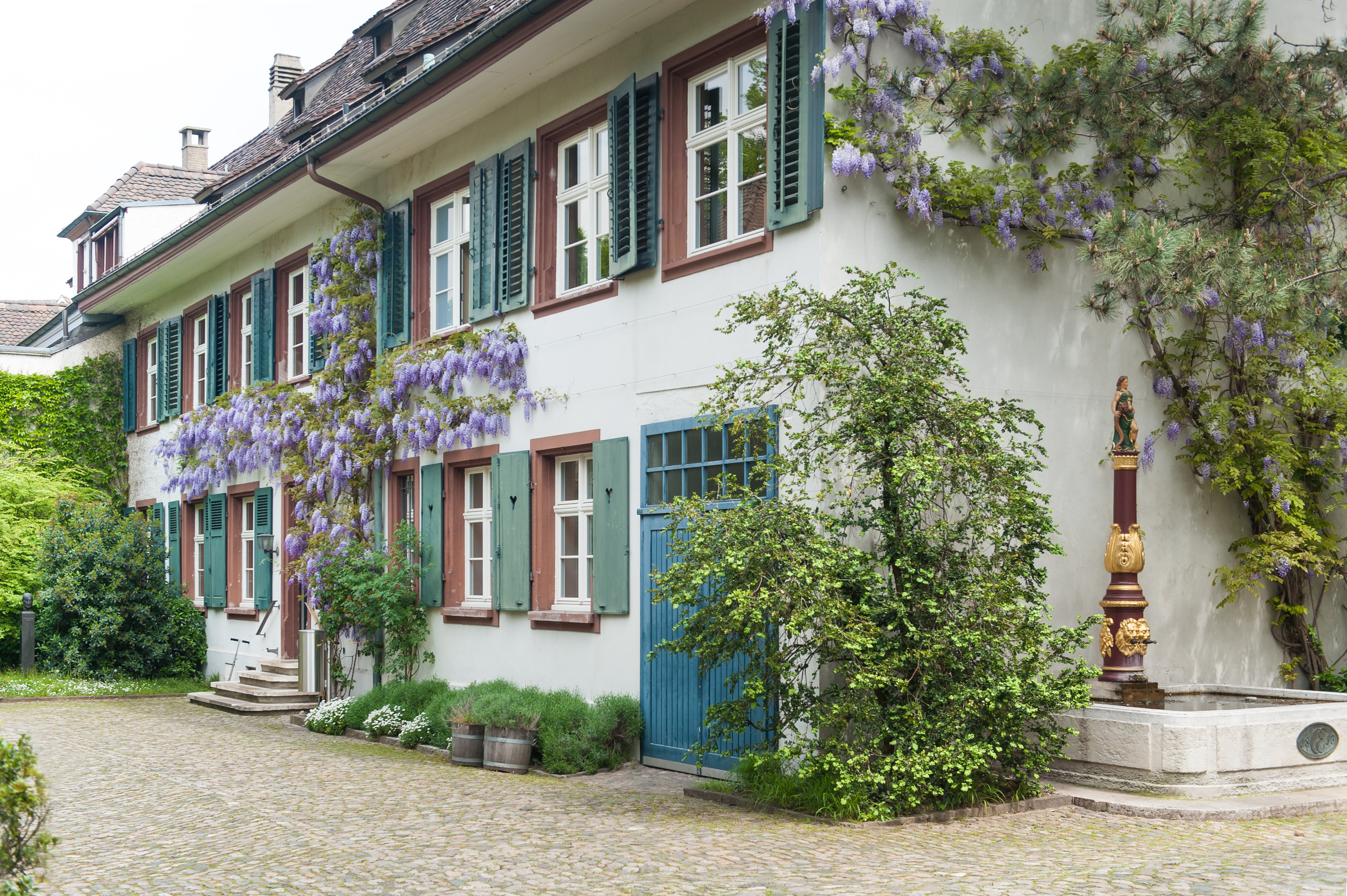The entrance exams consist of an on-site audition. There will be a first round "by video" (details below) for the majors violin, recorder (renaissance-romantic) and voice (renaissance-romantic). Exams for all other majors will take place directly on-site. Persons unable to take an on-site assessment for visa, financial or environmental (long distance travel) reasons may submit a request for an online entrance assessment (video presentation and live interview). This request must be sent to scb.hsm@fhnw.ch at the same time as the application (by 31 January), stating the reasons, and must then be approved by the management.
First round/Video recordings (only for violin, recorder (renaissance-romantic) and voice (renaissance-romantic))
Video recordings must be handed in as part of the application.
- Content: Please prepare 3 pieces that present a selection of different stylistic fields. Use the repertoire samples as a guide. Applicants must perform on period instruments or replicas thereof in the entrance exams. List the information on your “list of works”.
- Form: three separate uncut videos of music (one per piece)
- Total length of the videos together: 15 – max. 20 minutes.
- Date: The recordings should usually be new and prepared for the entrance exams. Published videos only uncut and not older than six months.
- (Continuo-)Accompaniment: is requested. You can work with people from your own setting.
Technical requirements:
- Camera Position: Please record the video from a fixed point of view, ideally using a tripod. The hands and the face of the candidate / musician plus the instrument must be visible.
- Audio: We recommend using a separate stereo microphone and placing it properly (If necessary, you may also use the microphone of a camera, computer, or smartphone).
Transmission:
Only applicants considered for the second round will be invited to an on-site audition.
On-site audition (second round)
Please also refer to the document Eignungsabklärung.
Audition plus interview: Please prepare a programme of 15 to max. 20 minutes with pieces from at least three different stylistic fields. (Also) use the repertoire samples as a guide. The programme (may be identical to the one of the video) must be submitted together with the list of works for the entrance exam on-site. The candidate may choose the first piece. Then, the jury will decide which works to play and is allowed to interrupt the audition at any time. Afterwards, there will be a short conversation about the study objectives and contents as well as the applicant´s prior education, experience and career goals, the preferred professor, etc.
The general section of the entrance exam (theory) and proof of proficiency on a keyboard instrument take place on the same day, usually before or after the on-site audition for the main subject (duration: 20 min.).
- sing and identify intervals played on the harpsichord (closed and open position)
- active singing of intervals above or below a given pitch
- sing and identify triads (3/5, 3/6, 4/6): major, minor, diminished and augmented
- sing triads upwards and downwards from a given pitch
- sing and notate a simple tonal melody
- improvise a continuation of the dictated melody
- Sight-sing a melody of medium difficulty from the 17th or 18th century, notated in treble or bass clef
- Performance of a prepared, short piece of your choice on the harpsichord (not required for those with major keyboard or plucked instruments)
Further information can be found here.
Date
The on-site auditions will take place between mid-March and mid-April. The exact dates may be seen here after the beginning of January.
Registration
You may apply from 15 December until 31 January.
The following documents must be handed in with your application:
Curriculum Vitae including motivational letter and school leaving qualification (Matura, Abitur, Baccalauréat, High School-Diploma).
Announcement of the results
The results of the first round will be communicated by email by the end of February.
The results of the second round will be communicated by email in the beginning of May.



